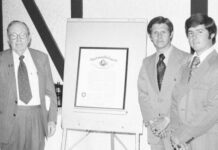Greek-life finance leaders at Iowa State and Purdue University eschew traditional office jobs and regimented accounting curriculums.
Fewer young people are pursuing careers in corporate finance. For various reasons, a career in finance, particularly in accounting, has become unattractive, daunting, and undesirable for people entering the workforce. Despite the rewards a leadership position like a CFO role can bring, the journey can be accompanied by many long hours and high tuition bills, things many young people aren’t interested in.
But there’s hope. Whether through entrepreneurship, pursuing work experience, or just trying to provide value, young people interested in business are finding ways to showcase the upside they can bring to an organization.
The CFO strategy for Artificial Intelligence
Despite contrary beliefs, young people not avoiding finance may not be a generational problem or even an institutional problem for finance but rather a marketing problem — careers in finance have been mostly labeled as uncreative, boring, and unattractive.
Learning From Experience
Fraternities and sororities, which earn roughly $3 billion a year across the United States, need financial leadership to function. These positions, typically held by business-minded members, balance budgets for events and fundraisers, coordinate payments on house leases, collect dues, and more.
But the experience outside the job description that the CFO role demands nowadays, things like FP&A, data communication, and decision-making, are equally important in a role that relies on college kids holding up their end of the bargain.
“I was pretty much the CFO of my fraternity,” said John Legler, a junior at Iowa State University and former vice president of finance at the campus’s Alpha Sigma Phi chapter. “Previously there had been a lot of financial mismanagement, lots of outstanding dues and late rent payments, so it was my job to step in and clean up the books a bit,” Legler said. “We had to build a financial strategy for the future, which started with collecting over $40,000 in outstanding dues, and building a strategy and budget to ensure we were in a position to save money for the future.”
Legler, who credits the organization’s shift to his classmates and other fraternity leaders, says this experience allowed him to see how a finance leader’s impact can be more significant than just the books.
“I enjoy showcasing my experience, my knowledge, my passion for finance, and how I can provide value to an organization,” he said. “I couldn’t believe some of the things that were taking place financially at the fraternity, and I knew that someone needed to take action and make those financial improvements for the betterment of our organization.”






















